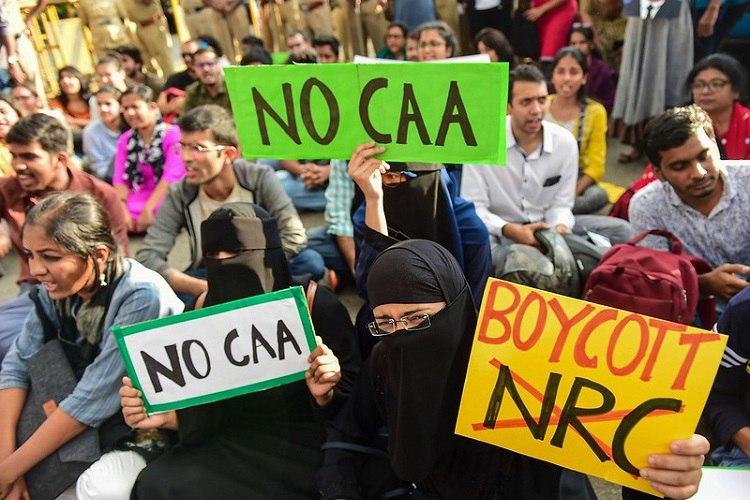New York/New Delhi : The United Nations High Commissioner for Human Rights has expressed concern that the Citizenship (Amendment) Act, 2019, is “fundamentally discriminatory”, and undermines India’s commitment to international law and the Indian constitution.The office of the UN High Commissioner for Human Rights (OHCHR) also expressed concern about the reports of two people dying in anti-CAB protests and called on all sides to not resort to violence.In the strongest criticism from Geneva so far, a spokesperson for UN Human Rights chief, Michele Bachelet said, “We are concerned that India’s new Citizenship (Amendment) Act 2019 is fundamentally discriminatory in nature”.
Speaking through her spokesperson, Bachelet noted that the Supreme Court will review the new law in the aftermath of a series of petitions filed. The head of UN’s human rights body expressed hope that the apex court “will consider carefully the compatibility of the law with India’s international human rights obligations”.
It was noted that the while the legislation seeks to expedite citizenship of six religious minorities fleeing persecution in Afghanistan, Bangladesh and Pakistan, “it does not extend the same protection to Muslims, including minority sects”.
“The amended law would appear to undermine the commitment to equality before the law enshrined in India’s constitution and India’s obligations under the International Covenant on Civil and Political Rights and the Convention for the Elimination of Racial Discrimination, to which Indian is a State party, which prohibit discrimination based on racial, ethnic or religious grounds,” said the spokesperson, Jeremy Lawrence.
He added that while India’s broader naturalisation laws remain in place, amendments brought through the latest act “will have a discriminatory effect on people’s access to nationality”.
The UN Human rights chief’s spokesperson said that all migrants, regardless of their migration status, are entitled to “respect, protection and fulfilment of their human rights”.
Reminding that India endorsed the Global Compact for Safe, Regular and Orderly Migration a year ago, the spokesperson stated that the pact committed states to respond to needs of migrants “in situations of vulnerability, avoiding arbitrary detention and collective expulsions and ensuring that all migration governance measures are human rights-based”.
The goal of protecting persecuted groups is welcome, said the UN human rights commissioner’s spokesperson, adding that this had to be done through a “robust national asylum system”. This system had to be premised on the principle of equality and non-discrimination and should apply to all people in need of protection “with no distinction as to race, religion, national origin or other prohibited grounds”.
The UN human rights commissioner also expressed concern over reports of two persons having died and many more, including police officers, having been injured in protests in Assam and Tripura. “We call on the authorities to respect the right to peaceful assembly, and to abide by international norms and standards on the use of force when responding to protests,” said her spokesperson, who added that all sides should refrain from resorting to violence.
Earlier, the UN secretary general Antonio Guterres’ spokesperson had said that the multilateral body was “aware of the concerns that have publicly expressed” about the Act.
“The United Nations is closely analysing the possible consequences of the law,” said the UNSG’s deputy spokesperson Farhan Haq in New York.
The Citizenship (Amendment) Bill was passed by Lok Sabha on Monday, followed by the Rajya Sabha on Monday. The President gave his assent to the bill, turning it into law, on Friday.
While the official response would be given after analysis is completed, the UN spokesperson said that that the Indian law should be in line with human rights principles preserved in international law. “And as I mentioned a few days earlier, of course, we have our basic principles, including those enshrined in the Universal Declaration of Human Rights, and expect those to be upheld,” he stated.
#India: We are concerned that the new #CitizenshipAmendmentAct is fundamentally discriminatory in nature. Goal of protecting persecuted groups is welcomed, but new law does not extend protection to Muslims, incl. minority sects: https://t.co/ziCNTWvxc2#FightRacism #CABProtests pic.twitter.com/apWbEqpDOZ
— UN Human Rights (@UNHumanRights) December 13, 2019
The #OIC General Secretariat reiterates its call to ensure the safety of the Muslim minority and the protection of Islamic holy places in #India. #BabriMasjid https://t.co/I7hZfWfotB
— OIC (@OIC_OCI) December 22, 2019




















Add Comment